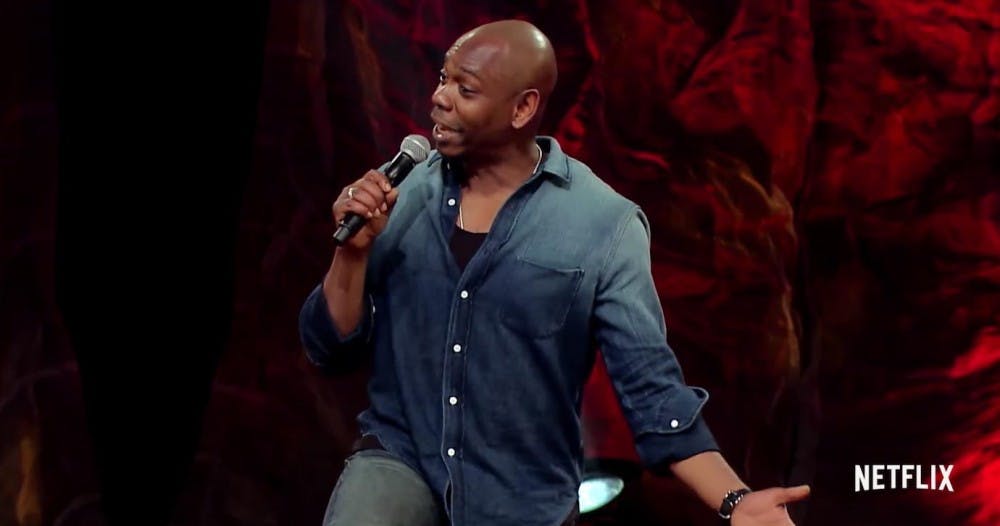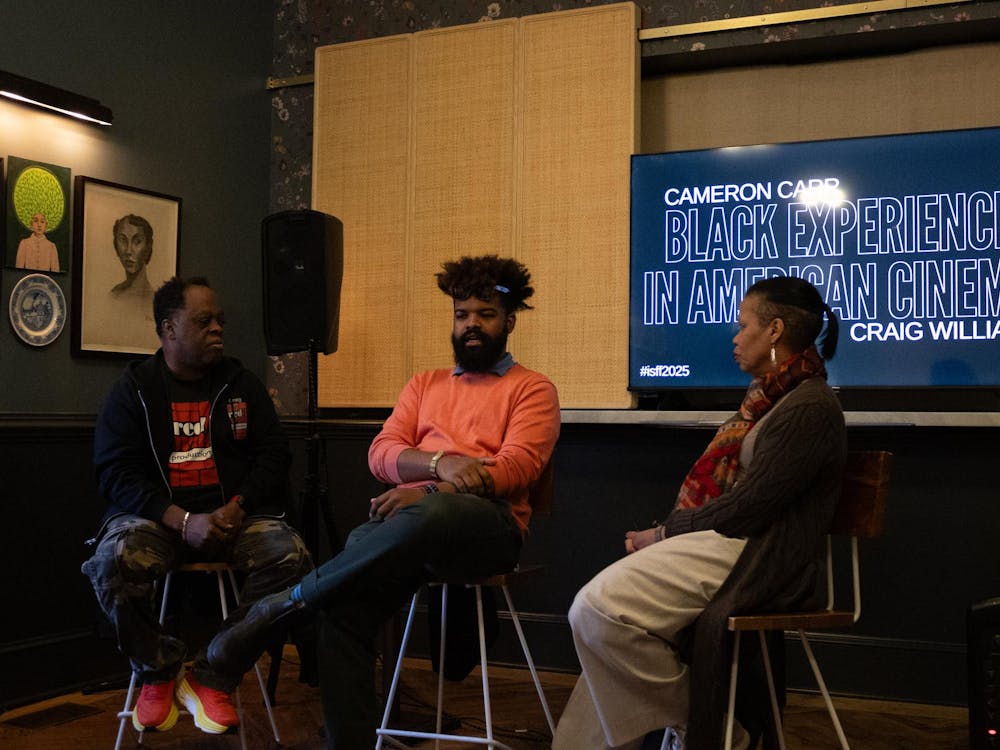The Benign-Violation Theory of humor set forth by Dr. Peter McGraw argues that “humor only occurs when something seems wrong, unsettling or threatening, but simultaneously seems okay, acceptable or safe.” Humor can be slipped into an argument to put an audience at ease, opening them up to extremely controversial ideas — it allows people to convey thoughts that might not be acceptable in a more sober context. Dave Chappelle does exactly this in “The Age of Spin” and “Deep in the Heart of Texas.”
After turning down a highly publicized $50 million deal with Comedy Central for the season renewal of “Chappelle’s Show” in 2005, Chappelle receded into darkness, making only sporadic one-off appearances in the years following. Despite a 13-year-gap in stand-up specials, watching these recent releases makes it feel as though Chappelle never left.
Chappelle seamlessly tackles contemporary issues of race, sexuality, poverty and police brutality while also providing insight into his reclusivity and perceived place in the world. Aside from a high production value and roaring audience, what sticks out most is how comfortable Chappelle appears. Whether rationalizing his admittedly selfish decision to attend the Oscars rather than a Flint, Mich. awareness campaign or contextualizing the progress of the LGBTQ community in the U.S., it seems as though Chappelle is his own best audience. No matter how much he plays with fire, he remains unscathed.
It is also important to note that both specials are over a year old. As Chappelle explains in “The Age of Spin,” Netflix offered him $60 million for the two previously-unreleased hours of stand-up, along with an additional special of new material due later this year. The specials reference some material which would perhaps have felt more current a year ago, but thanks to the mercurial and uncategorizable nature of Chappelle’s comedy, the material never feels dated.
The most notable example of this is Chappelle’s masterful Bill Cosby routine from “The Age of Spin.” Early in the set, Chappelle tells a story about a benevolent yet tragic superhero who unfortunately can only activate his powers by "touching a woman's vagina" and thus essentially must molest someone anytime he needs to help others.
"That's the dilemma for the audience," Chappelle says. "He rapes, but he saves a lot of lives. And he saves way more than he rapes and he only rapes to save, but he does rape."
Later in the set, this line is used again in reference to Cosby, a former hero to Chappelle. Without using trite and low-hanging ridicule, Chappelle is able to criticize Cosby while simultaneously contextualizing the impact of the first black man to win an Emmy, to create a successful cartoon with black characters having “accurate face proportions,” and who made sure his renowned “Cosby Show” portrayed African Americans in a positive light. This highly intelligent, multi-layered approach to comedy is hard to come by, especially when it makes no apologies for its contentious subject matter.
Chappelle also astutely observes the changes in the social dynamic between men and women in modern society. At times it sounds as though he is reading from a Sociology of the Family textbook, but the final — and often unconventional — posits he puts forth are quite beyond the comparatively quaint quarters of academia. He can operate on an intellectual level and an irreverent level at the same time.
Chappelle does not only dwell in the realm of social commentary. During his absence, comedians such as Key and Peele and Kevin Hart have become prominent figures in the entertainment world. Chappelle reflects on his place amongst them, praising Hart for his inventiveness and criticizing Key and Peele, as Chappelle feels the success of their show is largely due to the template created by “Chappelle’s Show.”
Chappelle’s brio is effortless, and his approach to comedy is novel, despite his long hiatus. While “The Age of Spin” achieves a higher high than “Deep in the Heart of Texas” in terms of structure and topics covered, both specials demonstrate that legends never die.







